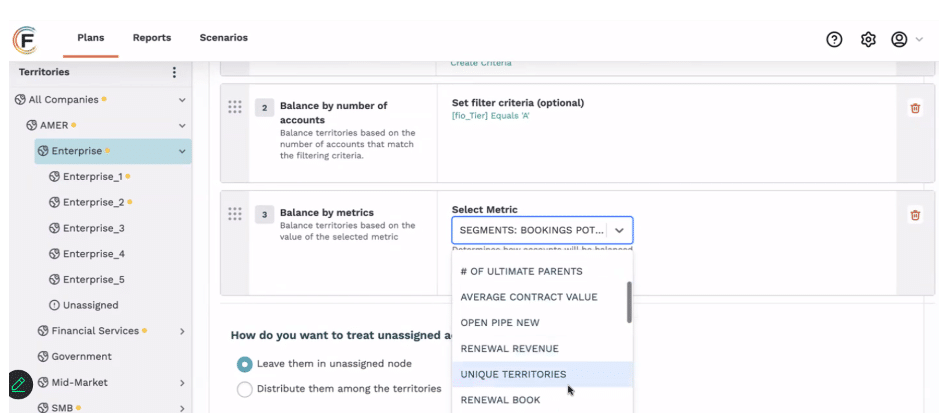Did your new hire just get assigned a quota of $450,000 within their first 30 days? Get real!
One of the challenges for today’s go-to-market is setting quotas that balance ambition with realistic sales targets. It’s a timely endeavor. A recent report found that 91 percent of sales teams missed their quota. Leaders attribute those misses to factors such as market conditions, misaligned sales activities, unstructured sales processes, lack of motivation, and—you guessed it—unrealistic quotas or sales goals.
As organizations navigate fluctuating market conditions, the impact of AI, and evolving customer expectations, there is a growing focus on setting both challenging and achievable quotas. Tools like AI-driven sales engagement platforms and CRM integrations are being leveraged to automate workflows and keep sales teams on track toward their quotas.
Additionally, as workforces evolve, quotas are tailored to individual performance metrics rather than adopting a one-size-fits-all approach.
Understanding Sales Quotas
Sales quotas serve as foundational key performance indicators for sales teams with factors like revenue, number of units sold, or new customer acquisitions. These quotas help measure progress, keep motivation high, and align individual efforts with company objectives.
However, effective quotas are not just arbitrary or one-size-fits-all figures; RevOps leaders craft them using market insights, historical performance data, and the unique strengths of each salesperson. In other words, for quota setting to achieve ambitious yet attainable goals, it needs to get personal.
Get Personal With Quota Settings
One-size-fits-all quotas don’t work in today’s sales landscape. Although quota attainment hovers around 50 to 70 percent on average, teams that rely on generalized quotas often barely achieve a 14 percent attainment.
In some cases, sales leaders fail to consider the unique strengths, territories, and customer bases of individual sales reps, leading to unrealistic expectations and decreased motivation.
By contrast, personalized quotas account for these differences, creating targets that are both challenging and achievable. This approach boosts morale, productivity, and employee retention by fostering a sense of fairness and recognition.
With Fullcast, RevOps leaders can use a single, AI-backed, data-driven platform to create and easily manage personalized quotas that acknowledge the nuances of each sales role and market condition to make them a more effective tool for modern sales organizations. They also recognize each sales rep’s unique strengths, territories, and customer bases, resulting in more realistic and motivating targets.
This customized approach aligns goals with individual capabilities, enhancing productivity and improves morale as reps are more likely to achieve their objectives.
Here are some popular examples:
Territory-based Quotas

Sales reps in different geographic regions may face varying levels of competition, customer potential, or market demand.
A personalized quota could take into account these regional factors, setting more realistic and attainable goals based on the unique characteristics of each territory. For example, a sales rep in a mature market might have a higher sales target compared to someone in a new or emerging market.
Account or Customer Segment Quotas

Personalized quotas can be set based on the accounts a rep manages. For example, reps handling enterprise accounts might have more extensive, longer sales cycles and, therefore, different quotas compared to those working with small or mid-market businesses.
Experience-based Quotas
A rep’s level of experience and historical performance can also be a factor in setting personalized quotas. Studies show that 40 percent of companies take a historic approach to setting quotes. For example, a more experienced rep might be given higher quotas, while newer or less experienced reps could have lower, more achievable targets as they build their skills.
Skill-based Quotas

Personalized quotas could also be tied to a rep’s specific strengths or skill sets. For example, a rep with unique language skills or strong closing skills may have a higher quota focused on closing deals, while another with stronger lead generation capabilities could have a quota that prioritizes opportunities in the sales funnel.
Product or Service Specialization
If your sales team offers a range of products or services, personalized quotas can be set based on the product lines that each rep is responsible for. For instance, reps handling high-value, complex products may have a smaller but higher-value quota, whereas those focusing on volume-driven products might have higher quantity-based targets.
A personalized approach to quota setting allows organizations to better align individual sales rep goals with their abilities and market opportunities. This improves motivation, performance, and retention.
For better quota attainment, make it personal. Personalized quotas foster a sense of fairness and recognition, which is crucial for maintaining a motivated and engaged sales team, leading to higher retention rates. Have questions? We can help.




















